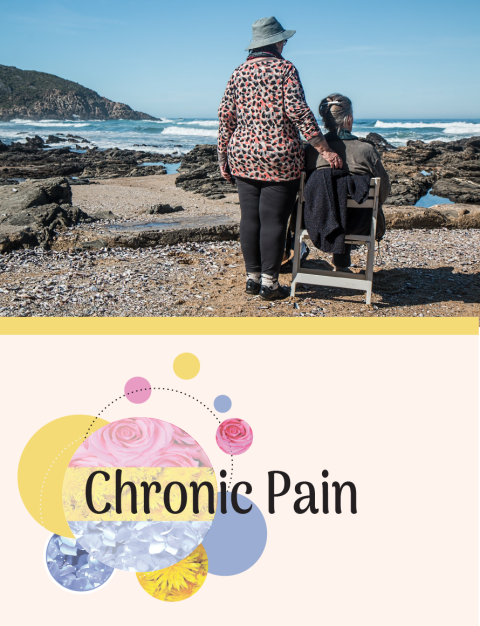Empowering Individuals in Managing Chronic Pain
Living with chronic pain can be a challenging and overwhelming experience, affecting every aspect of one’s life. The impact of persistent pain on physical, emotional, and mental well-being is significant, leading to decreased quality of life and limited daily functioning. While medical interventions play a crucial role in managing chronic pain, the addition of health and wellness coaching can provide invaluable support and guidance to individuals seeking a holistic approach to pain management. In this article, we will explore the benefits of health and wellness coaching in empowering individuals with chronic pain to take control of their health and improve their overall well-being.
Understanding Chronic Pain:
Chronic pain is defined as pain that persists for more than three to six months, often beyond the normal healing time of an injury or illness. It can stem from various conditions such as arthritis, fibromyalgia, back pain, migraines, and neuropathy, among others. Chronic pain not only affects physical sensations but also impacts emotions, sleep, mood, and overall quality of life.
The Role of Health and Wellness Coaching:
Health and wellness coaching is a client-centered approach that focuses on empowering individuals to make positive lifestyle changes to optimize their health and well-being. A health and wellness coach collaborates with clients to set goals, develop action plans, and implement sustainable strategies to overcome challenges and improve overall health. When applied to chronic pain management, health and wellness coaching provides a multifaceted approach that addresses the physical, emotional, and social aspects of living with pain.
1. Education and Empowerment:
Health and wellness coaches equip individuals with the knowledge and understanding of chronic pain, its causes, and its impact on various areas of life. By educating clients about the complex nature of pain, coaching enables individuals to make informed decisions about their health, empowering them to take an active role in their pain management journey.
2. Setting Realistic Goals:
Coaches work closely with individuals to establish realistic goals that align with their values, abilities, and aspirations. Through open and honest communication, clients can identify what they hope to achieve in terms of pain reduction, increased functionality, improved sleep, enhanced mood, and overall well-being. These goals serve as a compass, guiding individuals toward a healthier and more fulfilling life despite the presence of chronic pain.
3. Developing Coping Strategies:
Living with chronic pain often requires individuals to develop effective coping strategies to manage pain flare-ups, emotional distress, and daily challenges. Health and wellness coaching provides a supportive environment for clients to explore and experiment with various coping mechanisms, such as relaxation techniques, mindfulness practices, gentle exercises, and stress management strategies. Coaches help clients discover personalized approaches that work best for their unique circumstances, fostering resilience and adaptability.
4. Lifestyle Modifications:
A comprehensive approach to chronic pain management often involves making lifestyle modifications that support overall well-being. Health and wellness coaches assist clients in adopting healthier habits such as improving sleep hygiene, implementing an anti-inflammatory diet, incorporating regular physical activity within their limitations, and managing stress levels. These changes aim to optimize the body’s natural healing abilities, reduce pain, and enhance the individual’s overall quality of life.
5. Emotional Support and Accountability:
Chronic pain can take a toll on an individual’s emotional well-being, leading to feelings of frustration, isolation, and depression. Health and wellness coaching provides a safe and compassionate space for individuals to express their emotions and fears. Coaches offer active listening, validation, and encouragement, empowering clients to navigate the emotional challenges associated with chronic pain. Moreover, the coach-client relationship fosters accountability, helping clients stay motivated and committed to their pain management strategies.
6. Building a Supportive Network:
Health and wellness coaching can help individuals with chronic pain build a supportive network of resources. Coaches can connect clients with appropriate healthcare professionals, such as pain specialists, physical therapists, and psychologists, who can provide additional expertise and guidance. Coaches can also assist clients in finding support groups or online communities where they can connect with others who are going through similar experiences. Having a support network in place can provide a sense of belonging, reduce feelings of isolation, and offer valuable insights and encouragement.
7. Monitoring Progress and Adjusting Strategies:
Health and wellness coaching involves regular monitoring of progress and making necessary adjustments to strategies. Coaches work closely with clients to track their pain levels, functional improvements, and overall well-being. By closely monitoring progress, coaches can identify what is working well and what might need modification. This ongoing assessment allows for a tailored and individualized approach to pain management, ensuring that clients are continually supported in their journey toward better health.
8. Enhancing Self-Advocacy Skills:
Living with chronic pain often requires individuals to navigate complex healthcare systems, communicate their needs effectively, and advocate for themselves. Health and wellness coaching can help individuals develop self-advocacy skills, empowering them to ask questions, seek second opinions, and actively participate in their treatment decisions. By becoming informed and confident advocates, individuals with chronic pain can better navigate their healthcare journey and ensure their voices are heard.
9. Long-Term Support and Maintenance:
Health and wellness coaching provides ongoing support and maintenance even after individuals have made progress in managing their chronic pain. Coaches assist clients in maintaining healthy habits, managing setbacks, and adjusting strategies as needed. This long-term support ensures that individuals continue to prioritize their well-being, make informed choices, and sustain the positive changes they have implemented.
Chronic Pain
A complex and multifaceted condition that requires a comprehensive approach to management. Health and wellness coaching, with its client-centered and holistic approach, proves to be a valuable tool in supporting individuals with chronic pain. By combining education, goal setting, coping strategies, lifestyle modifications, and emotional support, health and wellness coaches empower individuals to take an active role in managing their pain, enhancing their overall well-being, and improving their quality of life. If you’re living with chronic pain, consider incorporating health and wellness coaching into your pain management plan to embark on a journey of self-empowerment and healing.






